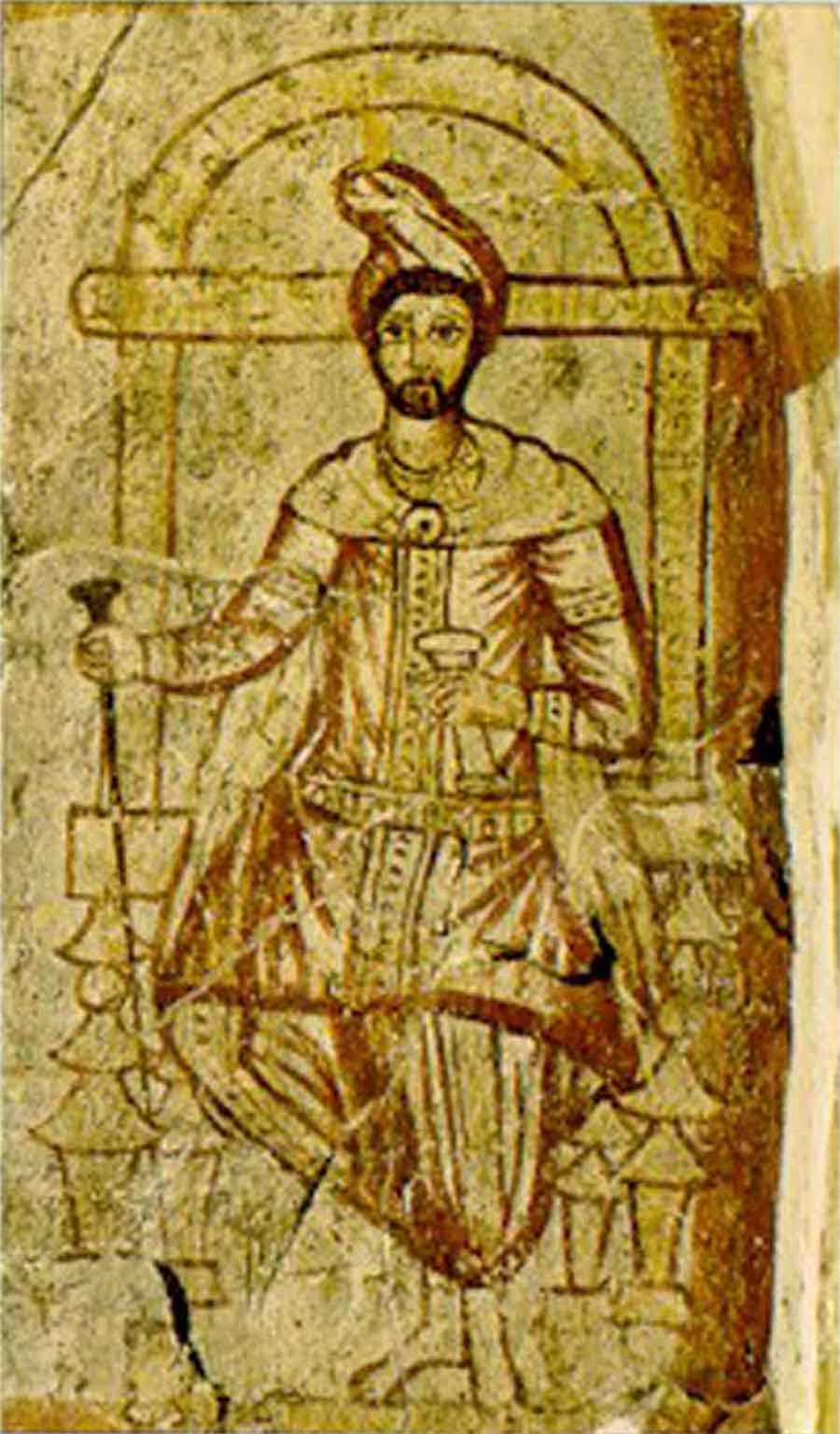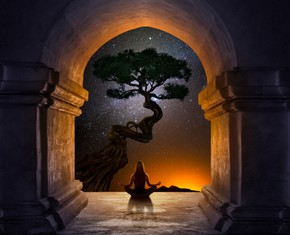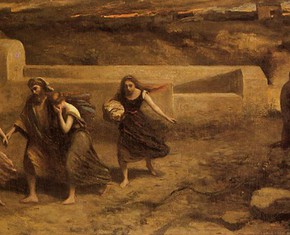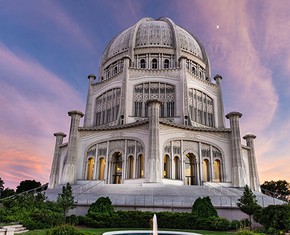The views expressed in our content reflect individual perspectives and do not represent the authoritative views of the Baha'i Faith.
Once in about a thousand years shall this City be renewed and re-adorned. – Baha’u’llah, The Book of Certitude, p. 197.
Baha’is believe, as you know if you’ve read BahaiTeachings.org for a while, that real religion is relative, progressive and evolutionary.
Many people think of religion as static, unchanging and relatively staid, a set of unrelated and even competitive dogmas and institutions. The Baha’i teachings look at religion from a completely different perspective—as one unbroken chain of progressive revelations, with each prophet of each Faith essentially giving us one unified message over time. Instead of competing books, Baha’is see the whole history of religion as chapters in the same book.
The book’s message remains the same, but also changes to fit the needs of the age.
The message remains the same because God repeatedly teaches humanity to love each other, to treat one another with kindness and humility, to follow the Golden Rule. These permanent spiritual laws concern themselves with morality, the essential inner development of humanity and faith in God. Those teachings never change. They have remained consistent throughout religious history.
But the message does change when it deals with the secondary social and spiritual exigencies of the era in which it appears:
The second classification or division comprises social laws and regulations applicable to human conduct. This is not the essential spiritual quality of religion. It is subject to change and transformation according to the exigencies and requirements of time and place… For example, it was lawful in Abraham’s cycle to eat the flesh of the camel, but during the time of Jacob this was prohibited. Such changes and transformations in the teaching of religion are applicable to the ordinary conditions of life, but they are not important or essential. – Abdu’l-Baha, The Promulgation of Universal Peace, p. 364.

Third century depiction of Zoroaster
So time changes conditions, and religious teachings and laws change to suit those conditions. That change occurs when a new Faith appears and develops. In the history of the world’s great Faiths, we can measure the interval between them in centuries—usually between five hundred to a thousand years, approximately. Somewhere around 2000 BC, Abraham founded Judaism. In 1500 BC, Krishna and others founded Hinduism. In 1000 BC, Zoroaster founded his Faith. At around 560 BC, Gautama Buddha founded Buddhism. Christ founded Christianity during the year 30 AD; and Muhammad founded Islam in 610 AD. A little more than a thousand years later, Baha’u’llah founded the Baha’i Faith in the middle 1800s.
Of course, many religions have existed throughout history. Most we no longer remember. Every culture on Earth has its own religious beliefs and practices, and its own prophets and messengers. God gives humanity a new Faith when we’re ready for the change that new Faith will bring. At the next stage of our evolution, we receive the guidance and the love we need in the form of a fresh revelation.
So what does Baha’u’llah mean, when he says in The Tablet of the True Seeker, that “Once in about a thousand years shall this City be renewed and re-adorned”? The City he mentions—which he calls “the City of Certitude” earlier in the tablet—obviously refers to the cycle of the renewal of religion; and our response as human beings to that renewal:
Wherefore, O my friend, it behooveth Us to exert the highest endeavour to attain unto that City, and, by the grace of God and His loving-kindness, rend asunder the “veils of glory”; so that, with inflexible steadfastness, we may sacrifice our drooping souls in the path of the New Beloved. We should with tearful eyes, fervently and repeatedly, implore Him to grant us the favour of that grace. That city is none other than the Word of God revealed in every age and dispensation. In the days of Moses it was the Pentateuch; in the days of Jesus the Gospel; in the days of Muhammad the Messenger of God the Qur’an; in this day the Bayan; and in the dispensation of Him Whom God will make manifest His own Book — the Book unto which all the Books of former Dispensations must needs be referred, the Book which standeth amongst them all transcendent and supreme. In these cities spiritual sustenance is bountifully provided, and incorruptible delights have been ordained. The food they bestow is the bread of heaven, and the Spirit they impart is God’s imperishable blessing. Upon detached souls they bestow the gift of Unity, enrich the destitute, and offer the cup of knowledge unto them who wander in the wilderness of ignorance. All the guidance, the blessings, the learning, the understanding, the faith, and certitude, conferred upon all that is in heaven and on earth, are hidden and treasured within these Cities. – Baha’u’llah, The Book of Certitude, pp. 198-200.
Baha’u’llah ends The Tablet of the True Seeker with this potent message: we can find all of God’s sequential guidance in the City of Certitude, the constantly-renewed repository of the world’s great religions.
Baha’is believe that City has once again risen from the ruins. In its newest incarnation, brought by Baha’u’llah, the City of Certitude offers humanity a map that leads to peace, unity and joy.
You May Also Like
Comments

















Baha'is don't to others in the present. He founded the religion and said to others, use your own minds and hearts to seek the truth, yet be careful not to be caught up in religious dogma. Also Baha'u'llah, as a Divine Manifestation just like Krishna and Buddha, knew the Holy writings of both their Books and spoke of them in His writings. As for Abraham, I wish I could answer your question, but I've read more Buddhist and Hindu Writings and not Judaic writings.